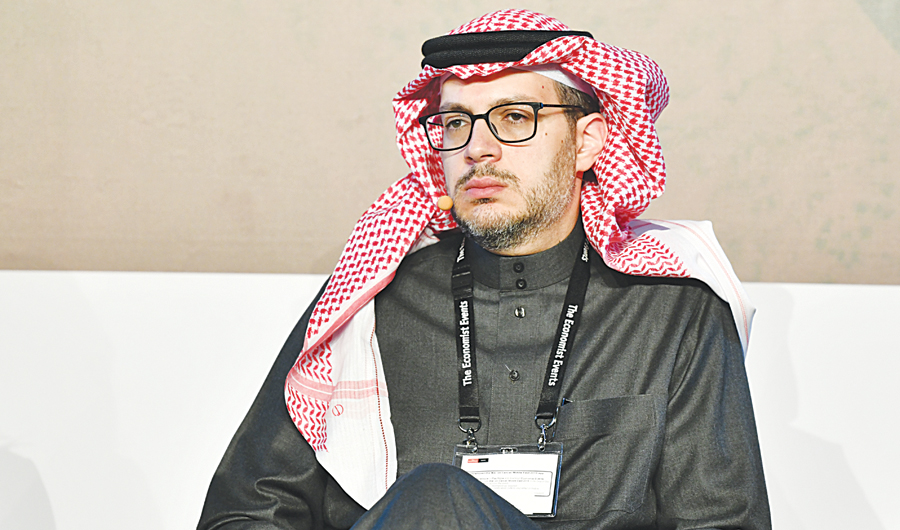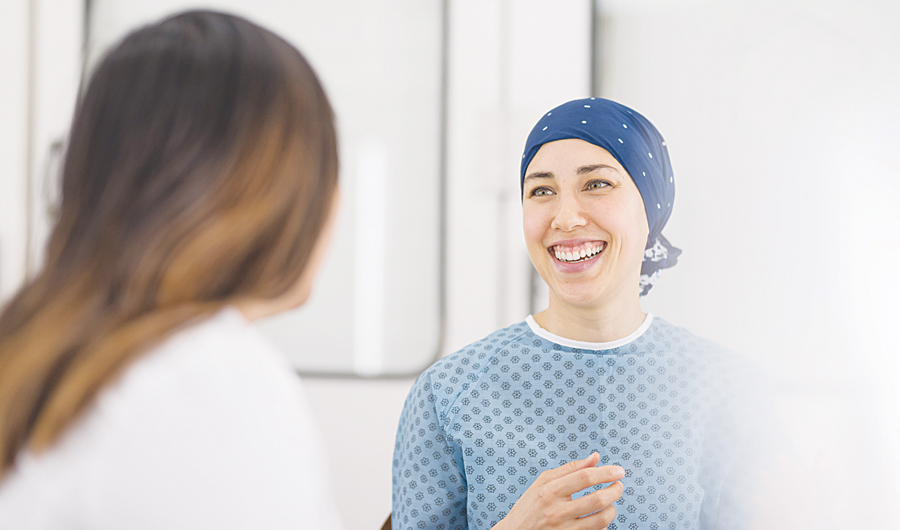DUBAI: Saudi Arabia’s Ministry of Health is aiming to become a global leader in the prevention of cancer, one of the region’s biggest killers, the deputy minister for therapeutic services told Arab News on the sidelines of the War on Cancer Middle East conference in Dubai on Tuesday.
In an exclusive interview, Tareef Yousef Alaama revealed that the ministry is planning a string of cancer-prevention initiatives in a bid to create a U-turn in the disease’s rising numbers. These include the roll-out of advanced screening programs; establishing new cancer centers across the region; increasing palliative care; and improving public health awareness about risk factors associated with cancer, including tobacco use, lifestyle habits and unhealthy diets.
“With the new health-care transformation that is going on in Saudi Arabia — the biggest in its history — as well as the specific clinical care initiatives we are championing right now, I am confident Saudi Arabia will become a global leader in health care and in cancer prevention,” Alaama told Arab News.
Over the next two decades, the Middle East is forecast to experience the fastest increase in the cancer burden globally, and by 2030 the prevalence of the disease is expected to be double what it was in 2012, experts heard at The Economist conference.
In Saudi Arabia and the UAE, cancer incidence rose by 49 percent and 62 percent, respectively, between 2008 and 2017.
At the conference, international experts warned that a “tsunami” of cancer will cripple health systems across the Middle East unless regional issues hampering progress in tackling one of the biggest killers are addressed.
A population boom, environmental factors, lifestyle choices and increasing detection rates have been pinpointed as the main drivers for the soaring figures, but they are further propelled by limited access to high-quality treatment and care, the conference heard. As the region grapples with how to invest in cancer treatment, improve prevention, screening, early detection and treatment, experts urged regional governments to devise a roadmap to reduce the prevalence of the disease.
Alaama said cancer has to be thought of as a continuum. “If you really want to tackle cancer, you have to start from the beginning, meaning preventing cancer,” he said.
“Public health and prevention techniques and improving the health of the population as a whole not only tackles cancer but also prevents myriad other issues — diabetes, obesity, blood pressure and strokes, and so on.
“So we in Saudi Arabia are strong believers in the role of public health and prevention; we recently had an amazing step forward when we got a royal decree stating that public health is to be a priority on all health policies.
“The whole government now works together in advancing public health, and we have had fantastic initiatives as part of that in terms of smoking, improving lifestyle, encouraging exercise (and) improving dietary habits.”
One example, said Alaama, is the compulsory posting of calories on menus in restaurants across the Kingdom. “I think we are the first to do this in the region. We have also had smoking-cessation initiatives and changing the branding of cigarette packs and the so-called ‘sin tax’ on tobacco. We are doing many things to get the prevention point of view in hand.”
Another area of the continuum of cancer care is early screening. Alaama said that Saudi Arabia has “ambitious” plans for multiple screening programs to be rolled out across the Kingdom.

Saudi Arabia will become a global leader in health care and in cancer prevention, says Tareef Yousef Alaama, Deputy minister for therapeutic services. (Supplied)
“We are rapidly improving breast cancer screening, and now we will be starting a strong program for colon cancer screening. Breast and colon: These are two of the most important (cancers) for us and are relatively preventable through screening and early detection. We are expanding, but we need to expand more.
“We started having breast-screening clinics in malls, for example, to make it more accessible to the public, and we also have mobile units. The idea is, people do shy away from breast cancer screening, and we are trying to make it more accessible for them and more user-friendly to ensure we catch breast cancer in the early stages.”
Addressing diagnosis and therapy of cancer, Alaama said that Saudi Arabia had done “an amazing job” over the past decade in introducing state-of-the-art cancer centers in the Kingdom.
“Right now, we plan to scale up these cancer centers, to have these services provided in most of the regions of Saudi Arabia, so the service is accessible to everyone at their location, without having to travel.
“We are doing that through having three or four main cancer centers affiliated with smaller cancer centers across the regions, across the Kingdom. So they can exchange experiences, they can use the same protocols, patients can go between, but as if they were being treated in the same place and, in this way, we want to ensure that the services are provided without the patients having to travel. We know that we have world-level services, but we want to make sure that is available everywhere, for everyone.”
Palliative care is also at the top of the ministry’s future agenda. “It is one of those areas that has not been a priority in the past, but it will be, as we know for a fact that introducing palliative care early actually improves survival,” Alaama said. “It not only improves quality of life, but also makes people live longer.”
During the conference, the Economist Intelligence Unit (EIU) also revealed a snapshot of its cancer preparedness index, discussing the results of current cancer research and key findings. The index examined 28 countries across the world, including two from the Middle East — Saudi Arabia and Egypt — on how well-prepared countries are to achieve major reductions in premature deaths from cancer, increase cancer survival rates and improve quality of life for cancer patients.
The MENA region ranked the lowest on the chart, with a score of 56.7 percent, compared with a global average of 72.8 percent. The index found that, compared with other regions, cancer did not have the same priority as in other parts of the world, despite the region recording steep increases in the incidence of the disease.
The index recommended that Saudi Arabia, in particular, should improve its cancer registry, tackle smoking and other lifestyle choices, and implement more screening and early detection.
Alaama welcomed the findings. “I was very happy to see the recommendations given, and I agree with them. But I am very proud to say we have been one step ahead. If you look at all the recommendations made in relation to Saudi Arabia, we are actually approaching every one of them — and each one is a priority.
“When they talk about the integration of the sector, we are working on that; when they talk about investing in oncology expertise, that is one thing we are investing in — not only doctors but also nurses and pharmacists, everyone who cares for the cancer patient.
“We are also improving our cancer registry,” Alaama said. “We have a good registry that we are proud of; we started it a few years ago, and it is one of the few in the region. But I think there is room for improvement, and we are addressing that.”

Saudi Arabia is expanding cancer screening programs as part of moves to cut rates of the illness. (Getty Images)
At the conference, global experts and policymakers recommended a “call to action” to address hurdles that hinder progress in tackling cancer, particularly in a region that is home to diverse populations and socioeconomic groups, including the less wealthy, and with a high proportion of overseas workers.
Speaking to Arab News, Princess Dina Mired of Jordan, president of the Union for International Cancer Control, said that governments need to decide “at the highest political level” if they are going to take a “transformative approach” to cancer, or remain simply reactive and continue to “just put a Band-Aid” on the issue.
“We are seeing a tsunami of cancer cases in the region, and we are set to experience one of the highest incidence of cancer in all regions,” she said.
“We need to adopt an all-of-society approach where governments, the private sector and civil society work collaboratively to bring to life innovative, sustainable and appropriately resourced life-saving solutions for cancer.”



























